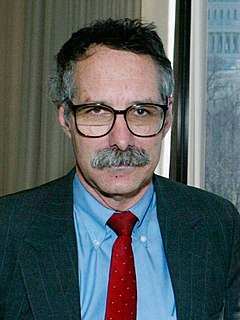A Quote by Alan Greenspan
The current financial crisis in the US is likely to be judged in retrospect as the most wrenching since the end of the Second World War.
Related Quotes
One intriguing subplot of the economic crisis is the failure of most economists to predict it. Here we have the most spectacular economic and financial crisis in decades - possibly since the Great Depression - and the one group that spends most of its waking hours analyzing the economy basically missed it.
Is it not tragic, for example, that while in the last World War almost everyone believed it was the war to end all wars and wanted to make it so, now in this Second World War almost no writer that I have read dares even suggest that this is the war to end all wars, or act on that belief? We have lost the courage to hope.
The Russians and the Chinese have been making enormous investments in the military. We have the smallest Navy since 1916. We have the lowest number of troops since the end of the Second World War. We've got to work with Congress, and Donald Trump will, to rebuild our military and project American strength in the world.


































